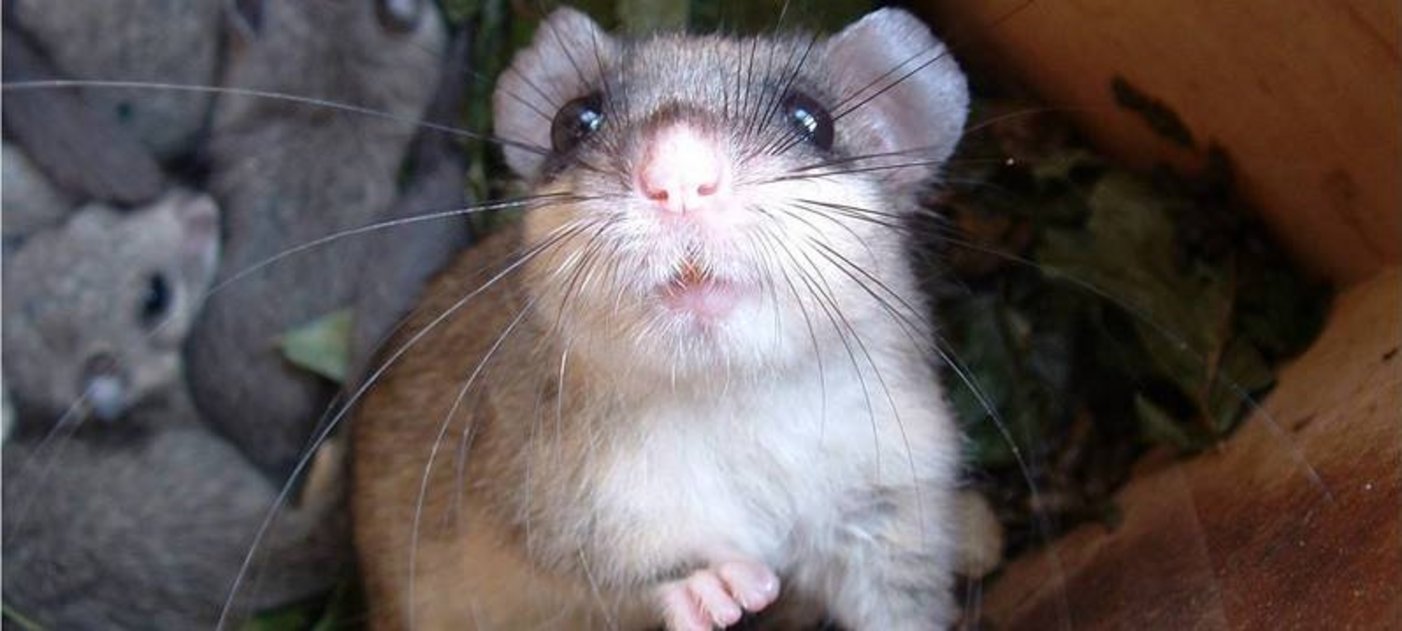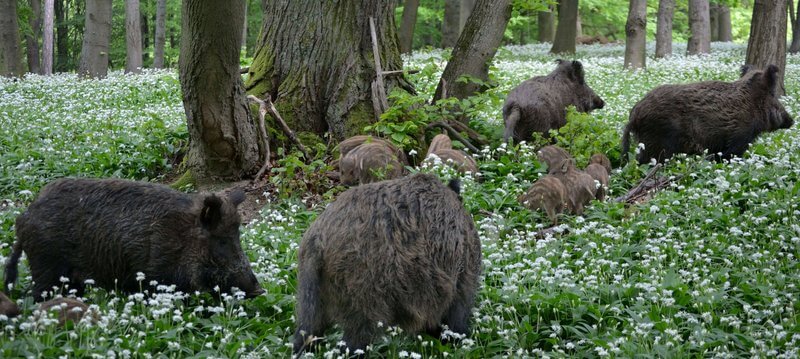- Research Institute of Wildlife Ecology /
- Research /
- Evolutionary Ecology
In this group, research focuses on the areas of adaptation of life cycle strategies and dynamics of populations. That means we want to understand how animals adapt their life cycle to the environment and what long-term effects this has on the development of populations. The environment that receives particular attention in our projects is the local mixed beech forest with its pulsed supply of food (beech cycles). In this context, we pay particular attention to how climate change affects reproduction and survival and how it affects wildlife populations in this ecosystem in the long term. The species we examine range from small mammals (dormouse species) to wild boar.
Since dormice (family Gliridea) are also hibernators, we work closely with the ecophysiology group. In fact, hibernation is an important feature of the life cycle and its detailed study, including in the field of physiology, is therefore heavily included in our ecological studies. In this context, we also investigate other aspects of hibernation, such as effects of this long period of inactivity on memory, spatial orientation, and cognition in dormice. Furthermore, it is exciting for us how these arboreal, i.e. tree-dwelling species, orient themselves spatially and what energetic costs are associated with this lifestyle. We also examine social interactions, and specifically communication in the rather vocal dormouse. Our approach is therefore very comprehensive and aims to better understand all aspects of a species-specific life strategy. This is the only way to make long-term statements about, for example, possible effects of climate change on the population development of these species.

